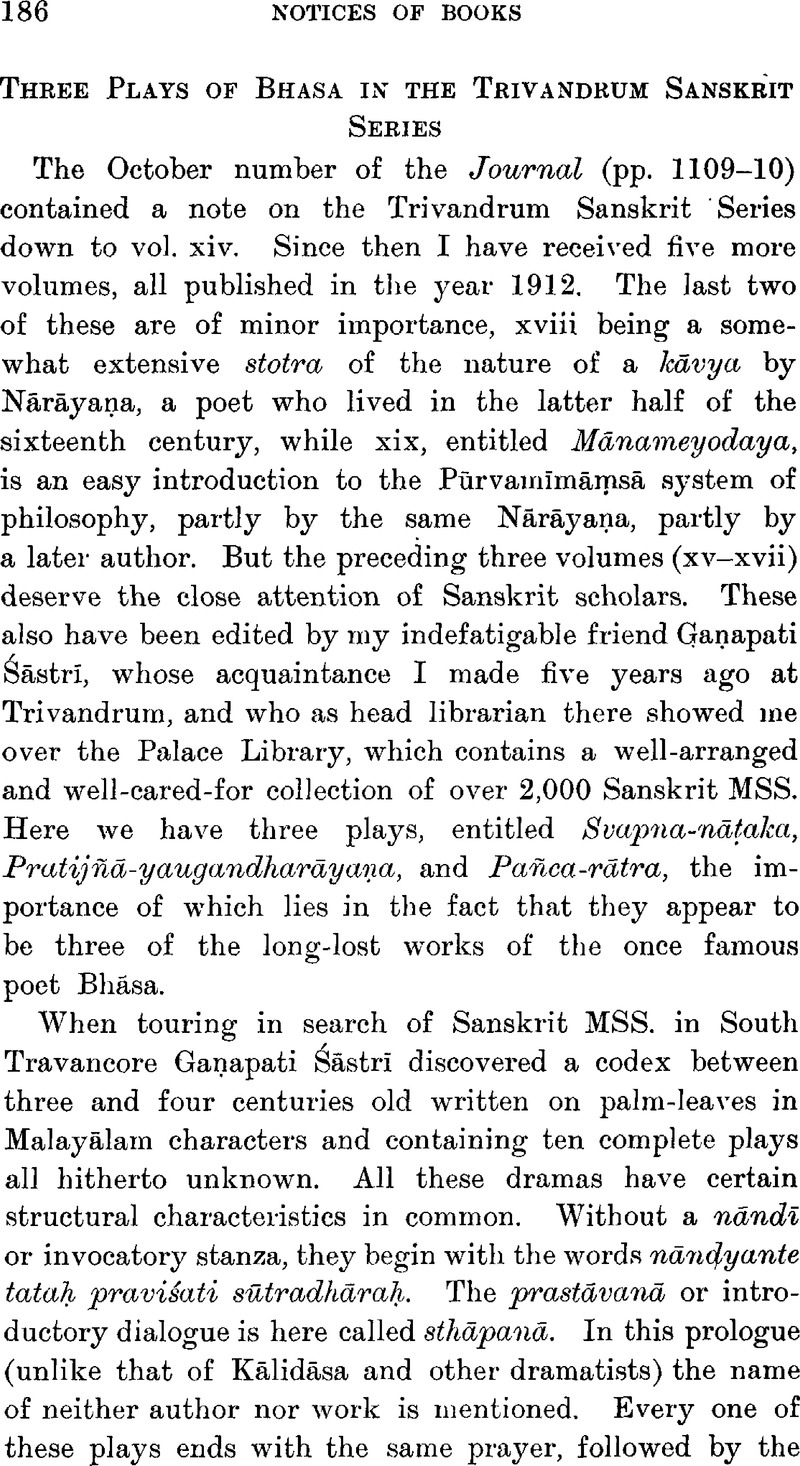No CrossRef data available.
Published online by Cambridge University Press: 15 March 2011

page 187 note 1 See vol. xv, Introduction, p. xxi; cf. Thomas, , Kavīndravacama-samuccayaḥ, Bibliotheca Indica, 1911, p. 87.Google Scholar
page 187 note 2 Shankar Pandit's edition, 1889, p. 3; cf. note, p. 164; see also Weber, , Sanskrit Literature, p. 205, n. 213.Google Scholar
page 187 note 3 See Cowell, & Thomas, ' translation, p. 3Google Scholar, śloka 15.Google Scholar
page 187 note 4 Gaṇapati Śāstrī understands this to mean “plays directly begun by the stage manager” (i.e. without a nāndī) as a characterization of Bhāsa's plays.
page 188 note 1 Thomas, , op. cit., Introduction, p. 91.Google Scholar
page 188 note 2 Vallabhadeva's Subhāṣitāvalī, 1286, 1353, 1619, 1628, 1821, 1994;. Śārṇgadharapaddhati, 3292, 3330: Harihārāvalī, Peterson, Report ii, p. 58Google Scholar; JRAS., 1891, pp. 331–2.Google Scholar
page 188 note 3 163 in Thomas' edition, p. 50; cf. Peterson, , JRAS., 1891, p. 332.Google Scholar
page 188 note 4 The abridged title for Pratijñā-yaugandharāyaṇa (vol. xvi).
page 188 note 5 In Sitzungsberichte der Königlich Preussischen Akademie der Wissenschaften, xxxviii, pp. 832–49, 1912.Google Scholar
page 189 note 1 See Thomas, , op. cit., p. 105Google Scholar, and cf. Pischel, Introduction to Rudraṭa's Śrngāratitaka, pp. 16 sqq.Google Scholar
page 189 note 2 Ed. Stenzler, p. 14.
page 189 note 3 Gaṇapati Śāstrī's Introduction to vol. xv, p. xxiii.
page 189 note 4 Śloka 22.Google Scholar
page 189 note 5 See Bohtlingk, , Indische Sprüche, 1, 255.Google Scholar